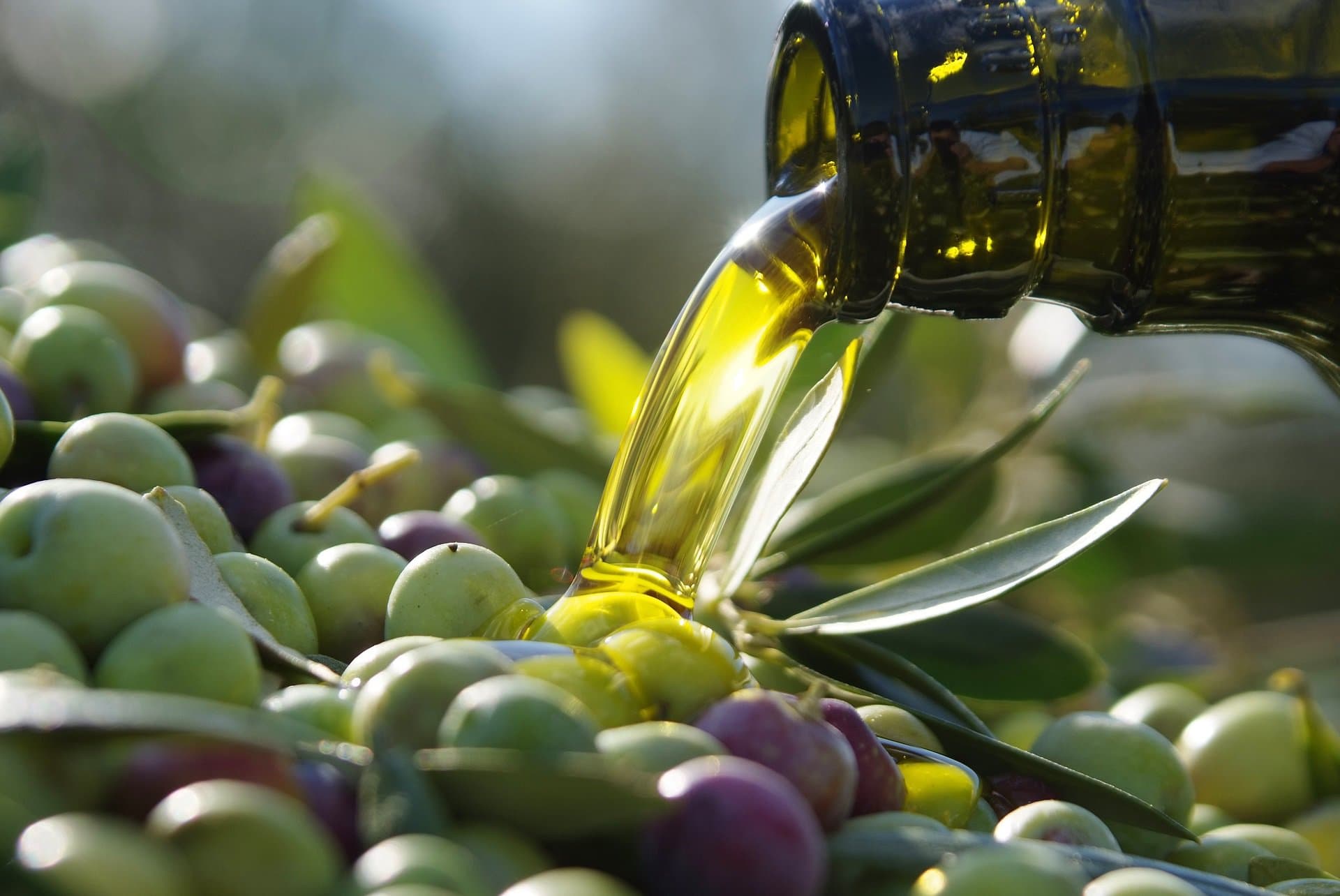In any diet or lifestyle that involves healthy eating, choosing the right cooking ingredients you are going to cook and eat is crucial. There is a big difference between eating and correctly nourishing your body with quality food products.
After all, these provide us with energy, help us improve our health every day and, how can we deny it, make our culinary preparations more delicious, no matter how simple they may be.
However, even today, we still find misconceptions regarding fat consumption, which is an essential dietary energy source. Therefore, we want to further talk about what fat means for our nutrition and how to incorporate it into any diet through the appropriate products.
What do you need to know to recognize healthy fats in food?
- What are fats exactly?
- What are the healthy and unhealthy fats?
- Which 10 fatty foods are healthy?
1. What are fats exactly?
Fats are the quintessential energy nutrient once the body has used up the calories from carbohydrates. They are denser in energy than other nutrients such as carbohydrates or proteins, providing 9 kcal per gram. That’s why we should moderate fat’s intake, but not suppress it.
Among other benefits depending on the food of origin, fats are necessary for the development of the brain and to control inflammation and blood clotting. In addition, they help with the absorption of fat-soluble vitamins such as A, D, E and K that are essential for our body.
You should also know that dietary fat is in turn composed of fatty acids that we know as saturated, unsaturated and trans, and that we release during digestion. Thus, depending on which type of fatty acid is predominant in each food, a distinction is usually made between healthy and unhealthy fat sources:
2. What are the healthy and unhealthy fats?
First of all, you need to know that processed foods can be made with healthy fats and still not be healthy. Meanwhile, some raw materials may have a higher content of saturated fats and, not for this reason, we have to eliminate them from our diet, since they can have many other benefits. So, although we must be careful with this classification, it’s considered that:
2.1. Healthy fats:
They are those unsaturated fatty acids, which in turn are divided into monounsaturated (such as Omega 9) and polyunsaturated (such as Omega 3 and Omega 6), and which are considered better for health. The foods that contain them help us prevent cardiovascular diseases since they can lower LDL cholesterol levels but, in addition, they can help improve the immune system and with other types of diseases such as Diabetes, among other benefits.
2.2. Unhealthy fats:
They are made up of saturated fatty acids, which are known to do the exact opposite of unsaturated ones. That is, a diet high in saturated fat can increase the level of LDL cholesterol in the arteries, leading to the development of heart disease and causing weight gain.
However, foods with a high content of saturated fat, which potentially should be avoided, are those animal products, such as butter, cheese, whole milk and some vegetable fats (palm oil, coconut…) that can be part of many diets. Although its consumption has become demonized, if you don’t exceed 6% of daily calorie intake it won’t be harmful to your health.
On the other hand, we also find in this list of unhealthy fats the trans-fatty acids or trans fats that are formed in the industrial processing of some foods. These go through a process known as hydrogenation through which they change their configuration, and several studies have shown their harmful effects on health.
So, what should you do when it comes to consuming fat? To begin with, fat intake should not exceed 30-35% of the total in a balanced diet. But, mainly, you must learn to choose your main fat sources well, opting for the healthiest first, prioritizing the fact that they come from whole or minimally processed foods:
Which 10 fatty foods are healthy?
Although most foods may contain a combination of different fatty acids to a greater or lesser extent, it will always be better to choose those products with a high content of monounsaturated and polyunsaturated fats, and moderate the consumption of saturated fats that may exist in foods with some other good properties. Thus, the fatty foods that you should prioritize in your diet (for example, the Mediterranean or the Keto) are:
3.1. Olives and olive oil:
Olives and especially extra virgin olive oil are some of the most important sources of fat that we can include in our diet. The health benefits of the last product have been corroborated by multiple studies that recommend its daily intake. So, we should always prioritize this fat source when cooking since, with its higher percentage of monounsaturated fatty acids, it’s an excellent option to withstand high temperatures while maintaining its organoleptic properties.
3.2. Nuts:
Nuts are rich in unsaturated fats, fibre and antioxidants such as vitamin E, in addition to the multiple minerals depending on each type. For this reason, walnuts, almonds, pistachios, cashews or hazelnuts, among others, are foods with great nutritional benefits that are an excellent fat supplement in many of our dishes.
3.3. Seeds:
Seeds, like nuts, are sources of healthy fats for the body. Those that contain more polyunsaturated or essential fatty acids are poppy, flax, sunflower, chia, sesame and pumpkin seeds. Mainly, rich in Omega 6, these seeds are an exceptional addition to most of our dishes, regardless of the time of day.
3.4. Peanut:
This legume, although it’s a very caloric food, has mostly monounsaturated and polyunsaturated fats. Its large amount of minerals (iron, phosphorus, potassium, calcium or magnesium) and its high protein content make it an ideal snack. Among its benefits, it helps control the blood sugar level, strengthening the muscles, as well as regulating cholesterol.
3.5. Avocado:
This fruit, which has a higher caloric intake than other fruits due to its fat composition, is rich in monounsaturated fatty acids, oleic acid and Omega 3 as well as a large number of vitamins (K, C, B5, B6 and E) and minerals which not only helps us protect our heart but also strengthens our immune system.

3.6. Fatty fish:
Tuna, salmon, sardines, bonito… are fish that provide us with a large amount of protein but, in addition, since they are high in healthy unsaturated fats, such as oleic, linoleic and omega 3, they are options that help us reduce the risk of cardiovascular diseases. As long as we are careful not to incorporate bluefish from contaminated seas (for example, with mercury), we can include it up to three times a week in our diet.
3.7. Egg:
Contrary to what one might think, the egg has a greater amount of unsaturated than saturated fats concentrated in its yolk, with oleic acid being the main fatty acid in this food. As you surely know, the egg is also a source of protein and other vitamins necessary for our body, so it can be an essential food in our diet.
3.8. Coconut:
Although coconut is a food with a high content of saturated fat, the fact that it’s rich in medium-chain fatty acids such as lauric acid and that, in addition, it’s rich in antioxidants, fibre and minerals, make it a very complete food with beneficial properties. Moderate consumption of coconut can help us protect our liver and heart, stimulate our immune system, act as a bactericide, etc.
3.9. Whole dairy:
Whole dairy products (milk, cheese and yoghurt) can provide several nutrients that support the brain, including vitamins B2, B3 and B12, but they are also rich in minerals such as calcium, phosphorus or potassium that strengthen our bones and muscles and that help us with energy levels, which is why they are excellent sources of protein.
But what about fats? Indeed, the main fats in the whole dairy are saturated, but they also contain unsaturated fatty acids, and in combination, evidence of consuming these foods in a balanced diet has shown health benefits.
3.10. Other animal fats:
Although the higher consumption of lean meats and EVOO is recommended in a balanced diet, such as the Mediterranean, we also have no reason to exclude the consumption of beef or pork or even the occasional consumption of butter.
The amount of saturated fat is indeed higher in these products. However, we could include meat in our diet weekly without any risk. The key will always be in the choice of the raw material with which we cook. This way we can enjoy our dishes as well as nourish our bodies.
Susbcribe to our newsletter







